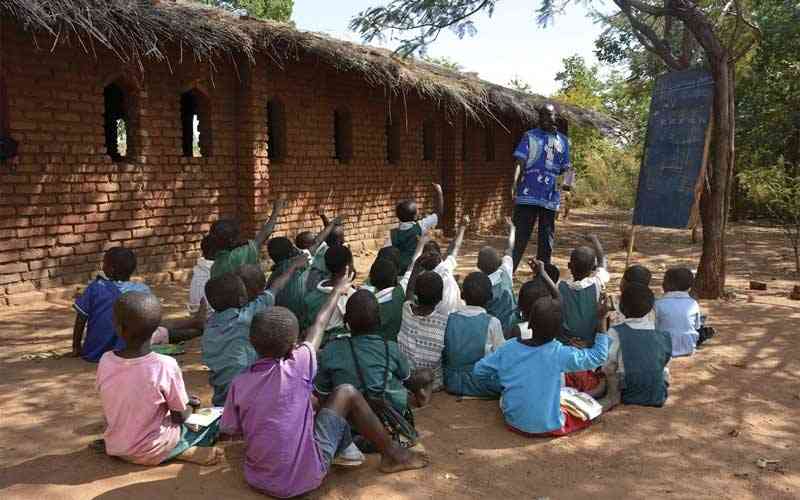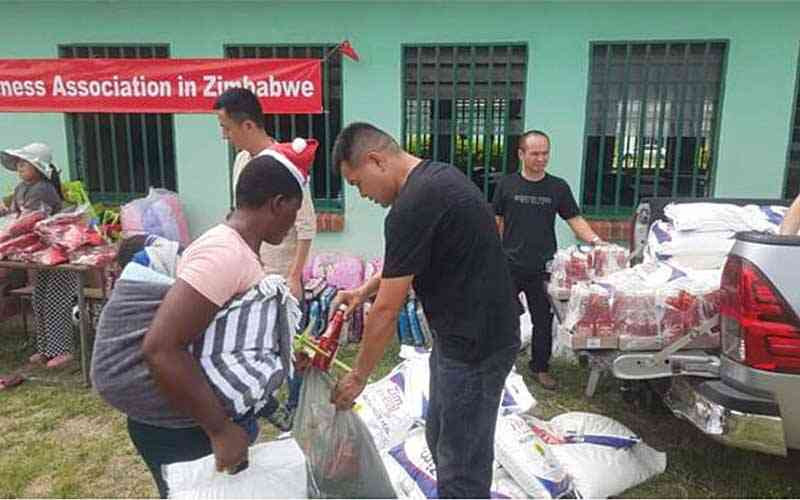
THE 2022 school calendar was affected by a myriad of challenges that included examination paper leaks, and strikes by teachers.
Schools were still struggling to recover from the effects of the COVID-19 virus and lockdown period.
There were also reports that in some remote rural areas, children in the countryside are still learning under trees due to lack of education infrastructure, while thousands of pupils from marginalised communities reportedly dropped out of school due to lack of school fees.
Examination paper leaks
The year 2022 was the worst in terms of Ordinary “O” and Advanced “A” Level’ examination paper leaks, which has seriously affected the credibility of Zimbabwe School Examinations Council (Zimsec) examinations.
In December 2022, Parliament was told that nearly 590 suspects were caught cheating while sitting for the November 2022 “O” and “A” Level examinations.
Central Intelligence Organisation operatives fished out the cheats. Police said the leaks could be traced to Zimsec offices in Harare.
Zimsec officials sought the amendment of the Zimsec Act to provide for mandatory custodial sentences for leaking examination papers.
- Young entrepreneur dreams big
- Chibuku NeShamwari holds onto ethos of culture
- Health talk: Be wary of measles, its a deadly disease
- Macheso, Dhewa inspired me: Chinembiri
Keep Reading
Examination paper leaks have been happening in the country since 2019.
School dropouts
In April this year, the United Nations Children’s Fund and Zimbabwe released a report saying nearly half of the country’s youth are not in school due to poverty exacerbated by the COVID-19 pandemic.
The report said the percentage has more than doubled in the last three years.
It said Zimbabwe spent 13% of its budget on education, instead of 20%, which was agreed to at a conference held years ago in Dakar, Senegal.
In August 2022, findings by the Union of Education, Norway and the Zimbabwe Teachers Association revealed that the number of school dropouts in the country increased by 20% since the onset of the COVID-19 pandemic.
“Some (pupils) lost their parents or guardians, while others joined the informal trading sector and gold panning. The girl child, in particular, was the most affected. Some of them got married or became pregnant at a very young age. The situation was quite bad.”
A November 2022 research by the Amalgamated Rural Teachers Union of Zimbabwe (Artuz) revealed that 63% of rural pupils dropped out of school in 2022 due to poverty.
The findings are contained in an Artuz research document titled Beyond Geographies of Inequality: Public Education Financing in Post-COVID-19 Zimbabwe.
“There is lack of reading skills in rural areas, with 85% of schoolchildren lacking reading skills, while 86% lack numerate skills compared to the urban schoolchildren where only 19% lack reading skills and only 14% lack numerous skills,” the Artuz report read.
However, in response to the report, Primary and Secondary Education ministry spokesperson Taungana Ndoro said: “It’s just an allegation, a sensational one too.”
Fee shockers
In August 2022, a global study ranked Zimbabwe’s education one of the most expensive, saying this has led to the rise in school dropouts.
The report by World Remit 2022 Cost of School said the price of education in Zimbabwe was six times more than the total average income for a family.
“To advance this annual study, World Remit observed 11 new countries, looking at the standard school supply costs. Of these, Zimbabwe showed the highest costs relative to average family size and monthly income at nearly 700% of the average family household income,” the report read in part.
“In Zimbabwe, costs to send household children to school this year will (be) more than six times the average household income for a given family.”
Rwanda, UK eye Zim teachers
As local teachers complained of being underpaid, the Rwandan government entered into a bilateral agreement with Zimbabwe to recruit some of its teachers.
Resultantly, 208 teachers passed the selection process for Rwanda deployment and the first batch of 154 arrived in Kigali on October 19, 2022.
The teachers that went to Rwanda later communicated through WhatsApp messages requesting anonymity saying they had not been cleared to speak to the media.
The UK government has also expressed interest in Zimbabwean teachers, which threatens a fresh brain drain in the education sector triggered by economic hardships.
Early in December 2022, the British government posted an update which listed teachers who qualified in Zimbabwe to apply directly for qualified status, allowing successful candidates to go straight into classrooms without further training.
Some Zimbabwean teachers are already employed in neighbouring countries such as South Africa and Botswana.
The country has 150 000 teachers for more than 10 000 schools.
Politicisation of the education sector
The year 2022 saw a lot of politicisation of the education sector, with students being force-marched to attend ruling Zanu PF party rallies and events to boost numbers.
In October 2022, a group calling itself Teachers4ED (Teachers for Economic Development) was launched to support President Emmerson Mnangagwa’s 2023 re-election bid.
The group is reportedly storming schools countrywide as it mobilises for support and has been blamed for paralysing learning time in 2022.
The association was also accused of holding midweek workshops at schools, with some having already taken place at institutions in Zvishavane, Bulawayo and Marondera.
The group was given the nod by government to “roll out its economic development” programmes at all schools across the country.
Schools are allegedly forced to use their own funds to cater for the travel and subsistence expenses of the organisers.
In October 2022, while addressing thousands of teachers drawn from the country’s 10 provinces at the launch of the Teachers4ED at the Harare International Conference Centre, Mnangagwa said teachers should be patriotic and stick to revolutionary ethos that anchor on the nation-State — Zimbabwe.
During the March 2022 by-election campaign, Zanu PF was also accused of using school buses to ferry its supporters to rallies.
Teachers unions on 22 school year
Artuz president Obert Masaraure said the 2022 education sector was a disaster.
“2022 was a disaster for the education sector. The sector, which is yet to recover from the impact of COVID-19, suffered from neglect. Slightly above 12% of the 2022 national budget was allocated towards education, but disbursement remained a challenge.
“Underpaid teachers were up in arms against an unresponsive government. The attrition led to loss of learning time for the learners. Teaching and learning materials remained scarce, with a book to learner ratio as high as one book per 120 learners. Learners in marginalised communities still learn under trees, with no access to ICT and other amenities.
“Parents, including teachers, were struggling to pay school fees. Schools were struggling to cope because of limited resources. Government once again violated section 75 of the Constitution, which mandates the State to remove all barriers to education. The promise of free education was never fulfilled.
“The US$13 per learner per year which was allocated for sanitary wear for the girl child was not disbursed. Implementing a new curriculum remained chaotic, with stakeholders complaining about the cumbersome ill-thought Continuous Assessment Learning Activities (Cala),” Masaraure said.
He said going into 2023, Cala should be reviewed.
“More resources should be allocated towards infrastructure development. Teachers should be paid a living wage. Government should also pay substantial grants to schools to make free education a reality,” he said.
Educators Union of Zimbabwe (EUZ) secretary-general Tapedza Zhou said 2022 was a difficult year for teachers.
“2022 was a very difficult year for the teaching fraternity as we have reasserted our worth. Our target is the reinstatement of the US$540 salary. We are confident that we will achieve our target though the pace is lamentable. Government is not committed to improving the welfare of the teachers. Where it offers increments, they are governed ties which make such monies a privilege than entitlements as the government does not want to be responsible enough for fair pensions and bonuses,” Zhou said
“Government still resists conventions and protocols for labour practice to which it is a signatory and this is a cause of concern.”
School infrastructure
Government has also been under fire for failing to build infrastructure in marginalised areas, particularly in Matabeleland provinces and farming areas, where children have been learning under trees and in barns on the back of harsh weather conditions.
Resultantly, some schools in Matabeleland provinces have been recording zero percent pass rates.










